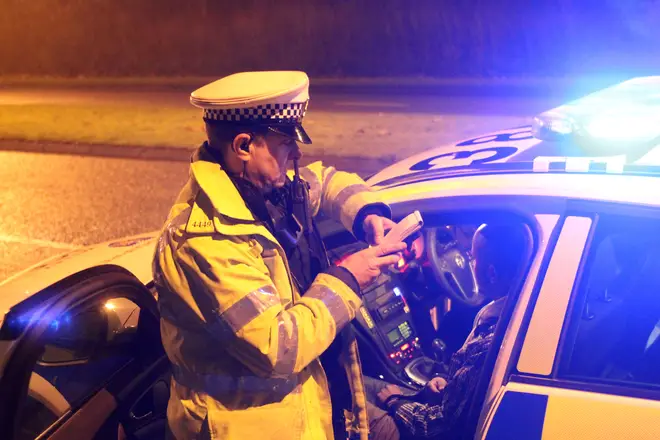
Ian Payne 4am - 7am
5 April 2022, 00:46

Drug-drivers will be forced to take mandatory rehabilitation courses before being allowed back behind the wheel, under fresh plans being put forward by Transport Secretary Grant Shapps.
The transport secretary hopes to stamp out the issue, which is often committed by repeat offenders.
There were more than 12,000 convictions for drug-driving in Britain in 2019, with 44% committed by repeat offenders, the Department for Transport said.
Those convicted of drug-driving are handed a driving ban, prison sentence or fine by the courts, but are not currently required to complete rehabilitation courses such as those offered to drink-drivers.
Mr Shapps set out his proposals due to concerns about levels of repeat offending.
Mr Shapps said: "Drink-driving is now rightly seen as a social taboo by most of us in this country and we have worked hard to drive down drink-drive related deaths.
Read more: Tearful Zelenskyy condemns Russian 'genocide' as he visits 'barbaric' massacre in Bucha
"But if we are to make our roads safer still, there is no room to be lax on drug-driving, which is why I have launched this call for evidence today.
"It's only right that drug-drivers must undergo rehabilitation before getting back behind the wheel, helping protect the public from this hidden problem and stamping out drug-driving for good."
Non-attendees of drink-driving rehabilitation classes are more than twice as likely to reoffend within three years, according to the DfT.
The call for evidence will also seek views on medicinal cannabis to "ensure road safety policy keeps up to date with changing societal norms", the department said.
RAC head of roads policy Nicholas Lyes said: "Drug-driving ruins lives and threatens the safety of all road users.
Read more: Trans women can be banned from single-sex changing rooms and toilets, watchdog finds
"We welcome proposals to offer drug-driving offenders rehabilitation courses, in the same way those caught drink-driving are offered them, because the evidence shows this helps to reduce reoffending and improves road safety."
In the UK, it is an offence to drive impaired by drugs.
It is also illegal in Britain to drive with certain banned drugs, such as cocaine or cannabis, in your system.
Any new legislation passed in Westminster would apply to Britain's roads but not those in Northern Ireland.